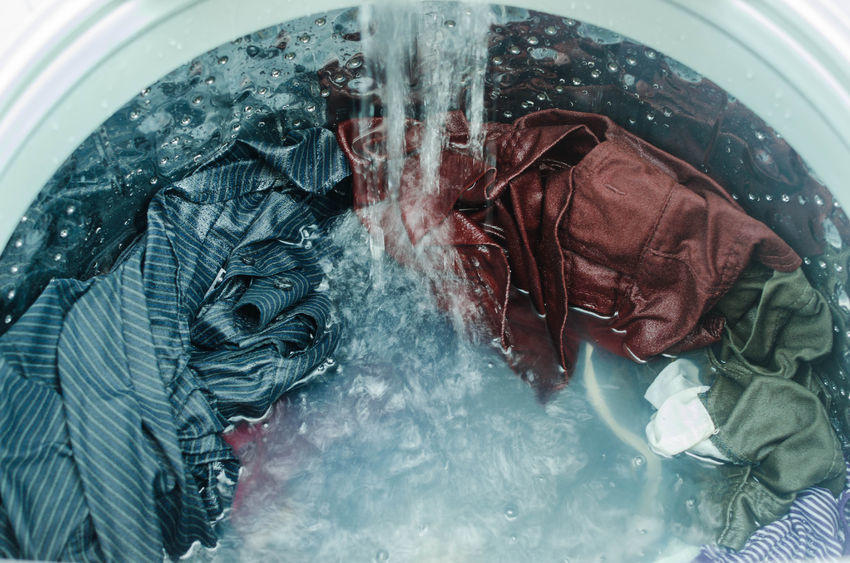When you think of home flooding problems, you might think they’re caused by broken pipes. What many homeowners do not realize is that your washing machine hoses are the most common culprits.
Burst hoses can cause flooding and major water damage in your home. Washing machine hoses are one of the most common causes of catastrophic water damage in homes.
Why do hoses fail?
Washing machine hoses can fail for a number of reasons. One of the most common reasons is the material in traditional rubber hoses. These rubber hoses lose their flexibility over time and are subject to cracks, leaks, bubbling, and bursting.
Rubber hoses aren’t the only reason washing machine hoses fail. Most hoses will eventually break from normal wear and tear. Just think about the water pressure that constantly runs through them. It’s the same pressure that you get from other faucets in your home. Plus, every time the washing machine shuts off the water, a shockwave is sent through the water pipes and hoses. This is commonly known as water hammer.
Here’s the worst part:
Eventually, the water pressure breaks the hose or the connection, forcing water out at full pressure. Just imagine: you suddenly hear a “Pop!” from your laundry room. You walk in to find water pouring out of the drain.
How much water exactly? In most homes, water will pour from a break like this at approximately 650 gallons per hour. If you’re doing the math, that’s 6 gallons per minute. Herein lies the real danger – those supply lines to the washing machine are always on. So water will pour from a broken hose until someone notices and turns off the main water supply. If you’re not home, that can mean a lot of water damage.
Don’t worry, there is a solution…
Inspect your washing machine hoses
Now that you know the damage that can happen, how do you prevent this type of water damage? First, you should inspect your hoses every few months. Look for the signs below:
- Damaged Hoses – Look for blisters, bubbles, cracks, discoloration, or any sign that the hoses are unraveling. If you see any of these signs, replace the hoses right away.
- Leaks – Look for moisture at the connections and signs of leaks like rust or discoloration. If you see any of these sign, you should replace the hoses to prevent a burst.
- Positioning – Look for kinks and crimps. Ensure there is at least 4 inches between the machine and the connections. If you notice that your washing machine is off balance and moves a lot during operation, it is a good idea to check the hoses often. The movement can place extra stress on the hoses and connections.
Other things you should consider:
Replacing Washing Machine Hoses:
We recommend that you replace your washing machine hoses every 5 years or anytime you notice any of the signs above. Rubber washing machine hoses should be replaced with stainless steel braided hoses. They are much more resistant to bursting and are fairly inexpensive compared to the potential cost of a flood. A professional can install these for you.
It might sound simple, but we recommend you get a professional plumber to replace your hoses. The process involves moving the washing machine and making sure that there’s no water in the lines. This is important to avoid water damage. Also, if the hoses aren’t installed properly, they may leak or burst.
Install a water hammer arrestor
A professional plumber can install a water hammer arrestor. This is a device that controls the water pressure pulse generated by sudden water interruptions. This is exactly what happens when your washing machine finishes a cycle. Installing a water hammer arrestor can reduce the stress on the hoses.
If you have questions about replacing your hoses or would like to schedule an appointment to replace your hoses, give us a call at (505) 761-9644 or schedule online today.


